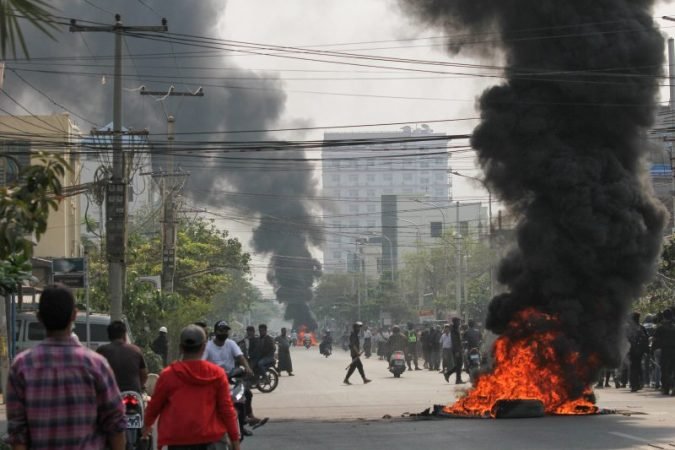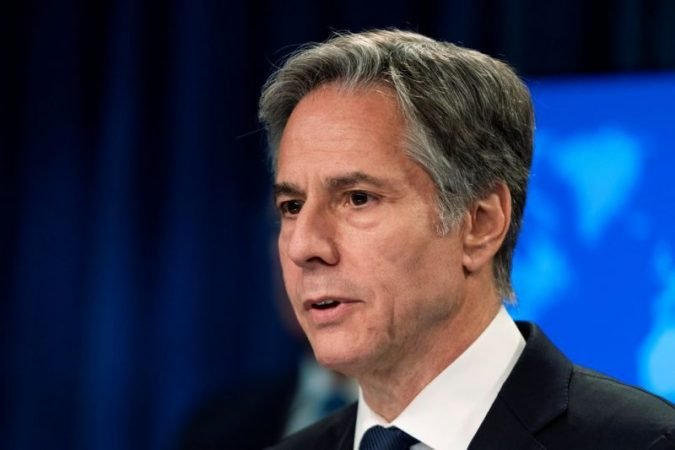U.S. calls for ASEAN action on Myanmar, rejects China maritime claims

HANOI, July 14 (Reuters) – The United States rejects China’s “unlawful” maritime claims in the South China Sea and stands with Southeast Asian nations faced with Beijing’s “coercion”, Secretary of State Antony Blinken said on Wednesday.
Addressing a video conference with foreign ministers from the Association of Southeast Nations (ASEAN), Blinken also said the United States has “deep concerns” about the situation in Myanmar and urged the group to take action to end violence and restore democracy in the country.
The meeting with the 10-member bloc is the first since the Biden administration took office in January and comes amid concerns among diplomats and others that Washington has not been paying sufficient attention to a region that is crucial to its regional strategy to counter an increasingly powerful China.
ASEAN has been leading the main diplomatic effort on member country Myanmar since a Feb. 1 coup plunged it into turmoil.
Myanmar’s junta has shown little sign of heeding a five-point ASEAN consensus, reached in April, which calls for an end to violence, political talks and the naming of a regional special envoy.
Blinken urged ASEAN to take “immediate action” on the consensus and appoint a special envoy to Myanmar, State Department spokesperson Ned Price said in a statement.
Blinken asked for the release of all those “unjustly detained” in the country, and the restoration of Myanmar’s democratic transition, Price said.
Blinken also emphasised the U.S. rejection of China’s “unlawful maritime claims” in the South China Sea at the meeting and said Washington “stands with Southeast Asian claimants in the face of (Chinese) coercion”, Price said.

China claims vast swathes of the disputed South China Sea via its unilaterally declared, U-shaped, “nine-dash line” which intersects with the exclusive economic zones of Vietnam, Malaysia, Brunei, Indonesia and the Philippines, all ASEAN members.
Trillions of dollars in annual trade flows through the disputed waterway.
In addition to the South China Sea, the Mekong River has become a new front in U.S.-China rivalry, with Beijing overtaking Washington in both spending and influence over downstream countries at the mercy of its control of the river’s waters.
Price said Blinken “pledged continued U.S. support for a free and open Mekong region under the Mekong-U.S. Partnership.”
Malaysian Foreign Minister Hishammuddin Hussein said he hoped Wednesday’s meeting signalled a “refreshed commitment” to U.S. multilateral cooperation in the region.
“We understand that multilateralism was not a key focus for the previous administration, but the Biden administration’s embrace of multilateral cooperation is a welcome development,” Hishammuddin said, according to a copy of his delivered remarks.
“This path is the only way forward to ensure stability, peace, prosperity and security for our region.”
Reporting by James Pearson; Additional reporting by Rozanna Latiff in Kuala Lumpur and Shubham Kalia in Bengaluru; Editing by Christopher Cushing and Raju Gopalakrishnan


















